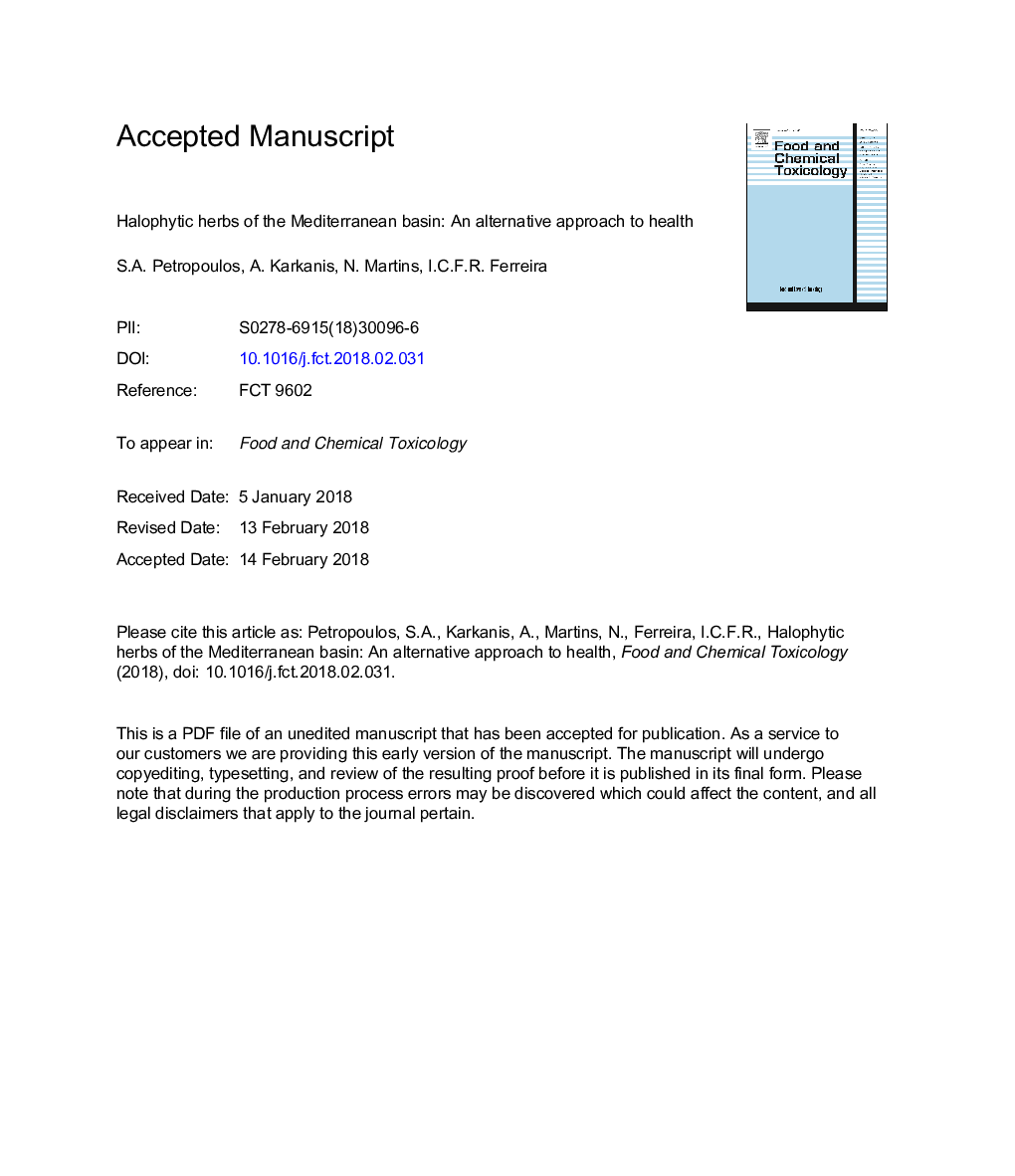| Article ID | Journal | Published Year | Pages | File Type |
|---|---|---|---|---|
| 8547722 | Food and Chemical Toxicology | 2018 | 71 Pages |
Abstract
Wild native species are usually grown under severe and stressful conditions, while a special category includes halophytic species that are tolerant to high salinity levels. Native halophytes are valuable sources of bioactive molecules whose content is higher in saline than normal conditions, since the adaptation to salinity mechanisms involve apart from changes in physiological functions the biosynthesis of protectant molecules. These compounds include secondary metabolites with several beneficial health effects which have been known since ancient times and used for medicinal purposes. Recent trends in pharmaceutical industry suggest the use of natural compounds as alternative to synthetic ones, with native herbs being strong candidates for this purpose due to their increased and variable content in health promoting compounds. In this review, an introductory section about the importance of native herbs and halophyte species for traditional and modern medicine will be presented. A list of the most important halophytes of the Mediterranean basin will follow, with special focus on their chemical composition and their reported by clinical and ethnopharmacological studies health effects. The review concludes by suggesting future requirements and perspectives for further exploitation of these valuable species within the context of sustainability and climate change.
Related Topics
Life Sciences
Agricultural and Biological Sciences
Food Science
Authors
S.A. Petropoulos, A. Karkanis, N. Martins, I.C.F.R. Ferreira,
